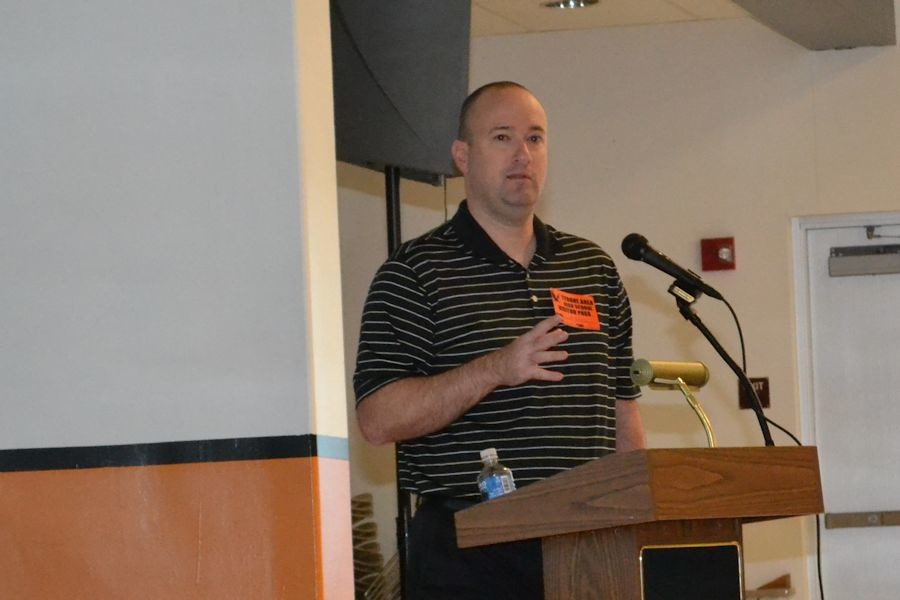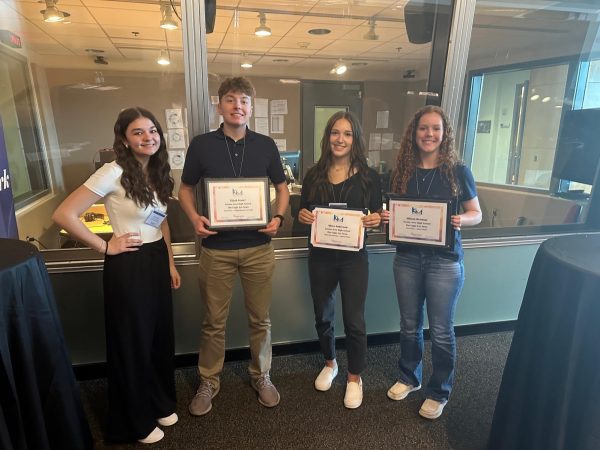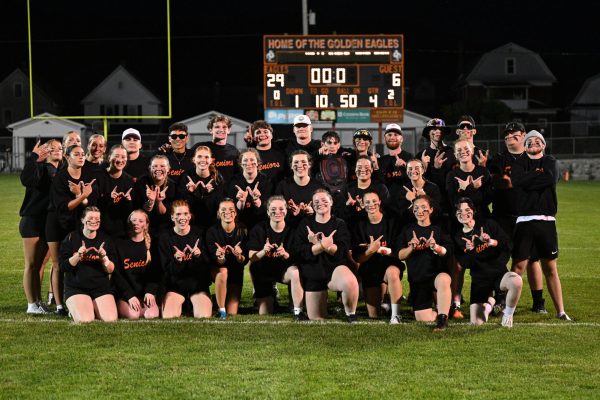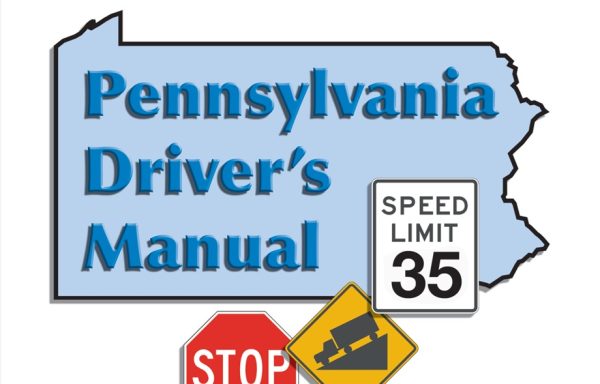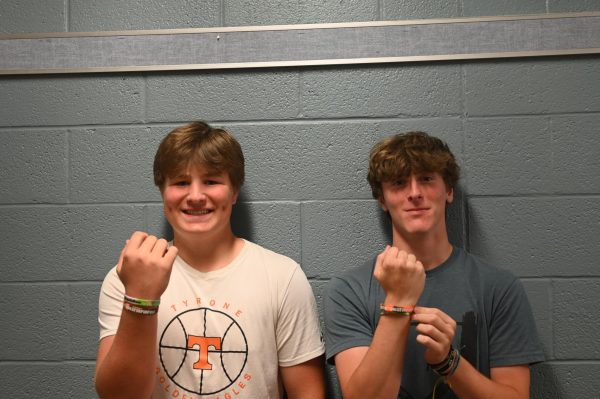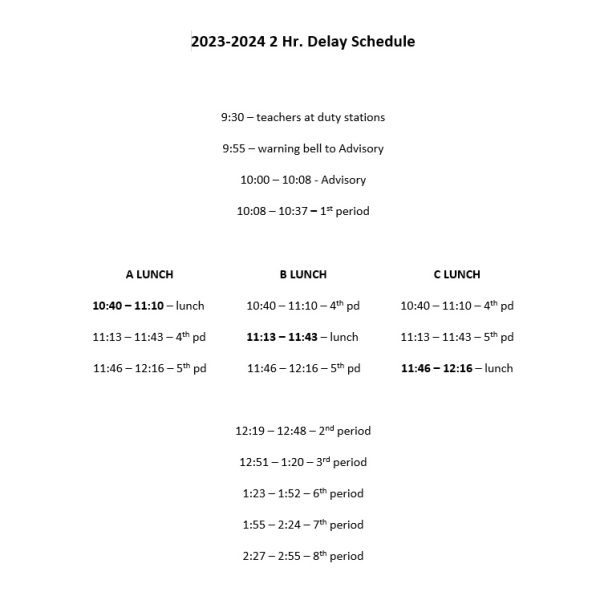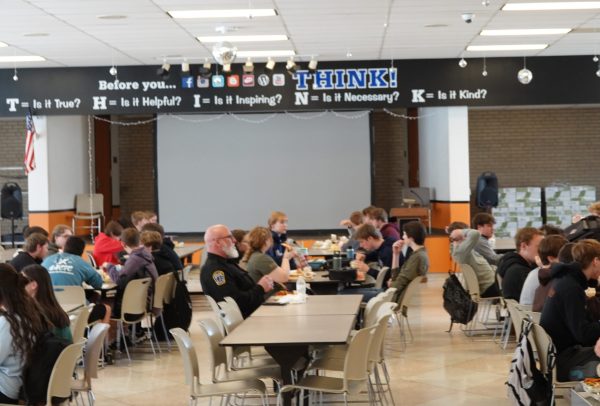Freshman Seminar focuses on Academic Integrity
The presentation on academic honesty is part of the Freshman Seminar series for all TAHS ninth grade students
Dr. Brad Pinter of Penn State Altoona discusses the topic of academic integrity with the TAHS freshman class as part of the “Freshman Seminar” series.
Imagine having a great academic record throughout middle and high school. With excellent grades, you are accepted at your first choice college with a full academic scholarship. Your first semester is going well, but after a night out with your friends you float back to your dorm, and realize at the last minute that you have a paper due tomorrow.
It’s already 2:00 am and you panic. You go online and find an essay that seems to be your style and it relates to the topic. You print it out and turn it in the next day as your own.
The Honor Code is important because it involves all students, teachers, and staff to operate under the same set of rules that are meant to protect all students and give them credit for their work
— PSU Professor Brad Pinter
A week later you get a call to the Dean’s office. The Dean and your professor inform you that they know you plagiarized the paper. As a result, you will receive an “F” for the course and you may even lose your academic scholarship.
Sad scenarios like this are what Dr. Brad Pinter would like TAHS students to avoid. Pinter, a professor at Penn State Altoona, focused his recent Freshman Seminar presentation on academic integrity.
“Academic integrity is the pursuit of scholarly activity in an open, honest and responsible manner,” according to the official statement on academic integrity on Penn State Altoona’s website. It includes “a commitment not to engage in or tolerate acts of falsification, misrepresentation or deception. Such acts of dishonesty violate the fundamental ethical principles of the University community and compromise the worth of work completed by others.”
“It’s important for students to understand what plagiarism and other forms of academic dishonesty are, and how to avoid them,” said Pinter, “By doing so students will become more confident with their work and set them up for academic success in the future.”
Many freshmen students at the presentation confess to plagiarizing work in the past, but most said they wouldn’t have done it if they had known the consequences. Plagiarism is a problem that exists here at Tyrone. Although it may not be common, there are a handful of cases each school year.
‘’I have plagiarized before, but I wish I had known the consequences before hand,’’ said freshman Eliana Greson.
Using someone else’s work as your own can be a serious offense. In high school, you might just get an ‘’F’’ on the assignment and maybe a detention. However, in college, plagiarizing will not only get you an ‘’F’’ on the project and you will fail that course for the semester and perhaps even lose scholarship money.
Pinter offered the freshman tips that will help students to avoid plagiarism. Splitting large assignments into chunks and being more organized was among the many tips Pinter discussed. Another thing he suggested was being more organized so you’ll feel prepared and not have to plagiarize.
I have plagiarized before, but I wish I had known the consequences before hand
— Eliana Greson
At Penn State they have an Honor Code pledge, which is a set of rules and guidelines that outline acceptable behavior within the academic community.
Taking the pledge allows students to commit themselves to a full academic experience while at college, that doesn’t require cheating.
‘’I think [the Honor Code] is important because it involves all students, teachers, and staff to operate under the same set of rules that are meant to protect all students and give them credit for their work,’’ said Pinter.
This seminar helped to spread awareness of the risks that are associated with cheating and plagiarism.

Laid back and easy going describe senior Toni Burns. In her third and final year in Eagle Eye, Toni hopes to make a lasting impact on the group. Toni...

As a second year Eagle Eye staff member and first year News Editor, junior Jaylon Beck seeks to expand Tyrone’s knowledge of their own FFA chapter....



